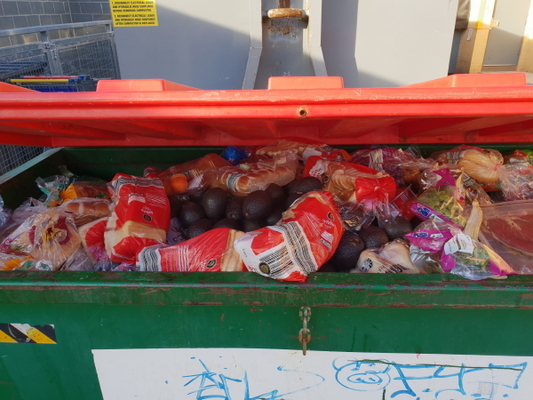Belmont’s John Miller has slammed a local supermarket for dumping food he believes could help feed the homeless and poor.
“This is shameful,” Mr Miller told the Indy,
“Why can’t this food be better utilised than sending to landfill? It could have absolutely had a use in helping feed people who are homeless.”
Mr Miller took several photos when he came across a dumpster at ALDI Belmont containing apparently unspoiled bread, avocados and other food waste.
“(The avocados) felt hard, they didn’t feel like they were going off,” he said.
“It shocked me, the amount that was in there – at first glance it looked fine.”
Rather than dump the food, Aldi should give it to local food relief agencies for them to decide the state of the food, Mr Miller said.
“This was a dumpster full of food that could have been used some way.
“This is a time when we’re talking about recycling plants closing down and everything going to landfall – waste is becoming a problem in this country.”
But an ALDI spokesperson said the supermarket chain donated 3500 tonnes of quality surplus stock to its food rescue partners.
“We will only discard products from our stores should they be unsuitable for sale,” the spokesperson said.
“We have a number of processes and policies in place to ensure that very few products on our shelves end up as waste.”
ALDI Belmont and other local stores had with Geelong Food Relief to avoid unsold food going to waste, the spokesperson said.
“Geelong Food Relief collects food from ALDI stores in the local area ever y weekday.
“On this occasion, there were some products leftover from the previous day’s collection that had been identified as unsuitable for use or consumption.
“Our charity partners have an obligation to provide their communities with food that is still of a high standard and as such, are sometimes unable to take foods that are inconsumable or considered a high risk, such as meat, eggs and produce. “









